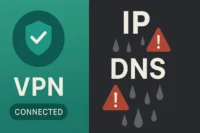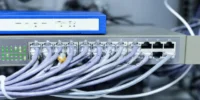What is the Hybrid Cloud Computing? Learn the Basics
Published: 8 May 2025
Hybrid Cloud Computing
More than 80% of companies today employ hybrid cloud computing solutions to get the most out of both private and public cloud environments. But have you ever wondered why some companies still struggle to choose between cloud options? Many businesses face problems like rising costs, weak security, and limited flexibility without the right cloud setup. Whether you are new to cloud technology or simply curious, hybrid cloud solutions could be the smart path you’ve been searching for.
What is Hybrid Cloud Computing
Hybrid cloud computing means using both private servers and public cloud services together. It helps businesses keep important data safe while still using online tools. This way, they get more flexibility and save money.
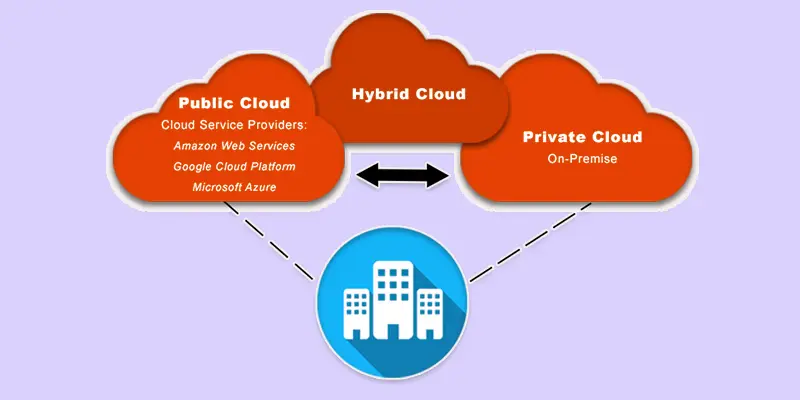
Hybrid Cloud Computing Definition
Hybrid cloud computing is when a business uses both its own servers and public cloud services to store and manage data more easily.
Real-World Examples of Hybrid Cloud Computing
Here are some hybrid cloud migration example:
- A bank stores customer data privately but uses the public cloud for apps.
- A school saves student records on-site but shares homework through the cloud.
- A hospital protects patient files locally but runs email on the public cloud.
- A store keeps payment info private but uses cloud tools for marketing.
- A company backs up important files at home and everyday files on the cloud.
How Hybrid Cloud Computing Works Step by Step
A hybrid cloud works by letting data move between private servers and public cloud services, giving businesses more control and flexibility.
- Private Cloud
- Public Cloud
- On-Premises Infrastructure
- Cloud Gateway
- Data Integration
- Cloud Management Platform
Private Cloud
A private cloud is a cloud service used only by one company. It stores data and runs applications on dedicated servers, giving more control and security.
Public Cloud
Anybody with internet access can use a public cloud service. It stores data and runs apps on shared servers managed by a third-party provider.
On-Premises Infrastructure
The hardware and software that a business owns and maintains in its own facility is referred to as on-premises infrastructure. It stores data and runs applications locally, without relying on the cloud.
Cloud Gateway
A cloud gateway is a tool that connects a company’s private network to the cloud. It helps manage data and communication between the local system and cloud services.
Data Integration
The practice of bringing together data from several sources in one location is known as data integration. It facilitates the management and analysis of all the data at once.
Cloud Management Platform
A cloud management platform is a tool that helps businesses control and monitor their cloud services. It makes managing cloud resources easier and more efficient.
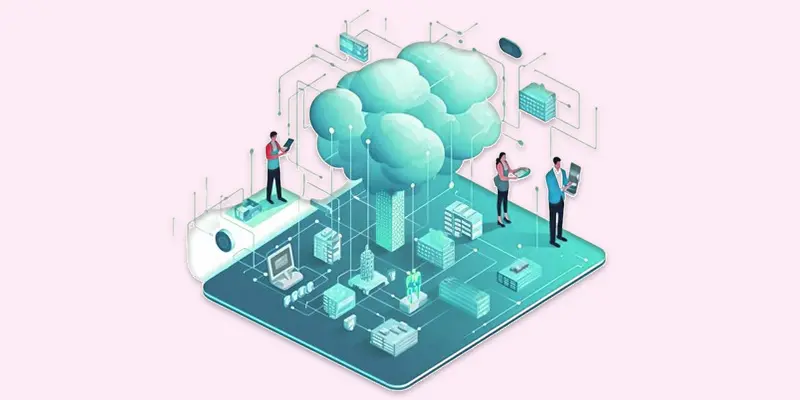
Hybrid Cloud Computing Use Cases in Business
Here are some use cases of Hybrid Cloud Computing:
- Data Backup and Recovery: Businesses use the private cloud to store critical data while using the public cloud for backups.
- Disaster Recovery: Companies keep their important data and applications in a private cloud, with public cloud services ready to take over in case of an emergency.
- Scalable Resources: A company runs its core applications on a private cloud but uses public cloud services to handle increased demand during peak times.
- Regulatory Compliance: Organizations store sensitive data in private clouds for security, while using public clouds for less sensitive operations.
- Development and Testing: Developers use public cloud resources for testing and development, but deploy final products on a private cloud for security and performance.
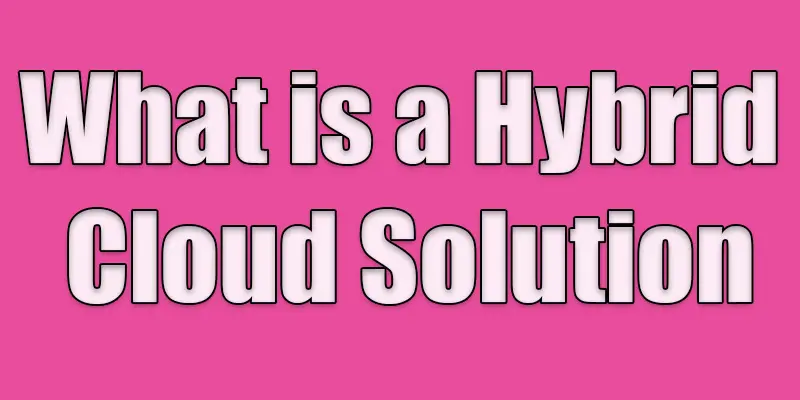
Conclusion About Hybrid Cloud Computing Solutions for Small Businesses
What is hybrid cloud computing? It’s an innovative solution that combines the best of both private and public cloud environments. If you’re looking to balance flexibility with security, hybrid cloud platforms
are a great choice. I personally recommend exploring how this technology can enhance your business operations by allowing you to scale quickly while keeping sensitive data safe. Don’t wait, start integrating hybrid cloud deployment today and see how it can benefit your organization.
FAQS
Private and public cloud environments are combined in a hybrid cloud approach. It enables companies to use public clouds for less important tasks while protecting sensitive data.
Hybrid cloud infrastructure is a setup that uses both private and public cloud resources. It gives businesses more flexibility by allowing them to move workloads between the clouds based on their needs.
Private cloud services provide cloud computing resources to a single organization. These services are hosted on private servers, offering more control and security over data.
A hybrid cloud uses both private and public clouds, while a multi-cloud uses multiple public clouds from different providers. Hybrid is more about blending, while multi-cloud focuses on diversity.
A hybrid cloud can be more secure because it allows sensitive data to stay in a private cloud while using the public cloud for less critical tasks. This gives more control over security.
The top challenges for hybrid cloud adoption are managing complexity and ensuring seamless integration between private and public clouds. These can be difficult for businesses to handle.

- Be Respectful
- Stay Relevant
- Stay Positive
- True Feedback
- Encourage Discussion
- Avoid Spamming
- No Fake News
- Don't Copy-Paste
- No Personal Attacks



- Be Respectful
- Stay Relevant
- Stay Positive
- True Feedback
- Encourage Discussion
- Avoid Spamming
- No Fake News
- Don't Copy-Paste
- No Personal Attacks


